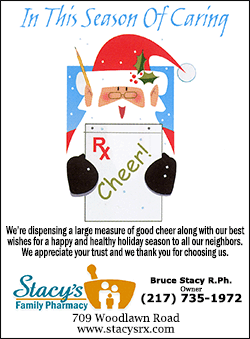|
Under U.S. pressure on
trade, Japan scrambles ahead of White House visit
 Send a link to a friend
Send a link to a friend
 [January 30, 2017]
By Yoshifumi Takemoto [January 30, 2017]
By Yoshifumi Takemoto
TOKYO
(Reuters) - Japan is scrambling to respond to intensifying trade
pressure from U.S. President Donald Trump, with Prime Minister Shinzo
Abe planning to meet the head of Toyota Motor Corp this week and
business lobby Keidanren planning a Trump task force.
Abe will visit Washington on Feb. 10 for talks with Trump at which the
U.S. leader is expected to seek quick progress toward a two-way trade
deal with Japan and discuss the automotive sector.
Ahead of those talks, Abe will meet with Toyota Chief Executive Akio
Toyoda, two sources told Reuters. One of them said the meeting would
take place on Friday. Chief Cabinet Secretary Yoshihide Suga denied a
meeting had been set for Friday, while Toyota Motor Corp declined to
comment.
In a phone call with Abe on Saturday, Trump reiterated his pledge to
create jobs in the United States and asked that the Japanese auto
industry contribute, the Nikkei business daily reported, quoting
unidentified Japanese government officials.
The two leaders discussed the automotive industry, senior government
spokesman Koichi Hagiuda told reporters after the phone call, without
giving details. A White House statement said the two "committed to
deepen the bilateral trade and investment relationship".
Japan needs to craft a plan to show that its firms, car makers
especially, will contribute to creating U.S. jobs, a former Japanese
diplomat said. "I think that is the only way forward to make the
bilateral summit a success," the diplomat said.

"Trump only cares about numbers. Everything has to be linked to jobs
creation," he added. "Symbolically, autos is a very big player."
Abe has left the door open to discussing a free trade agreement (FTA)
with the United States, but some officials worry Japan would have little
to gain while coming under intense pressure from Washington. Bilateral
talks on specific sectors such as autos, however, are an option,
officials have said.
Trump, who last week dropped out of the 12-nation Trans-Pacific
Partnership pushed by his predecessor Barack Obama and favored by Abe,
has repeatedly attacked Japan's auto market as closed, in an echo of
criticisms heard two decades ago.
Japan has rejected that accusation, saying it does not impose tariffs on
U.S. auto imports nor put up discriminatory non-tariff barriers.
Over the decades, Japanese automakers have developed SUVs, mini-vans and
pick-up trucks specifically targeting American consumers' taste for
bigger cars, while U.S. brands have struggled to make inroads in Japan,
where drivers overwhelmingly prefer domestic brands.
Foreign-branded cars accounted for only 7 percent of the Japanese
passenger car market, led by Germany. American brands collectively made
up less than a third of 1 percent of passenger cars sold in Japan last
year.
[to top of second column] |

Akio Toyoda, president of Toyota Motor Corporation, speaks during
the North American International Auto Show in Detroit, Michigan,
U.S., January 9, 2017. REUTERS/Mark Blinch/File Photo

TRUMP TASK FORCE
Toyota has come under fire from Trump for plans, announced in 2015, to
shift production of its Corolla sedan to Mexico from Canada. Earlier
this month, Japan's top automaker said it would invest $10 billion in
the United States over the next five years, the same as the previous
five years.
Toyota says it directly employed about 40,000 American workers as of
December 2015, and indirectly more than 200,000 if dealers and suppliers
are included.
Japan's biggest business lobby Keidanren wants to beef up its
information gathering and analysis of the Trump administration's
policies, while also conveying data on Japan Inc's importance to the
U.S. economy, a Keidanren official said.
"We will create a task force, the main purpose of which is to convey
correct information about the contribution of Japanese firms in the
United States," said another Keidanren official, who declined to be
identified because he was not authorized to speak to media.
Japan's government is already trying to give Trump's administration a
crash course on its companies' contribution to U.S. jobs and growth,
with fact sheets showing, among other things, that Japanese companies
created 839,000 jobs in America, second only to Britain.
Tokyo came under harsh U.S. criticism in the late 1980s and early 1990s,
when Japan accounted for up to 60 percent of the U.S. trade deficit.
But now its share has shrunk to less than 10 percent, while China's has
ballooned to nearly 50 percent - something Japanese officials are trying
to stress to American counterparts.
Automobiles and car parts account for about three-quarters of the
overall Japan-U.S. trade gap, making it an easy target.
Japanese media have begun reminiscing about the heated U.S.-Japan auto
talks 20 years ago. A last-minute deal in June 1995 averted U.S. tariffs
on Japanese luxury cars when Japan's automakers crafted "voluntary
plans" to boost purchases of American auto parts and expand production
in the United States.

(Additional reporting by Chris Gallagher, Maki Shiraki, Kiyoshi Takenaka,
Ami Miyazaki, Stanley White, Chang-Ran Kim and Tetsushi Kajimoto;
Writing by Linda Sieg and Malcolm Foster; Editing by Lincoln Feast and
Alex Richardson)
[© 2017 Thomson Reuters. All rights
reserved.] Copyright 2017 Reuters. All rights reserved. This material may not be published,
broadcast, rewritten or redistributed. |